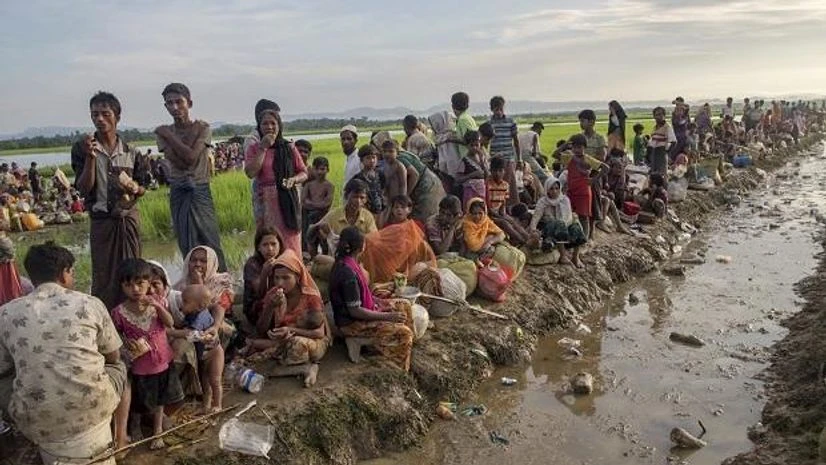Will thousands of illegal Rohingya migrants get the status of refugees in India or will they be deported? This question is to be decided by the Supreme Court, expectedly before the Chief Justice of India Ranjan Gogoi retires on November 17.
Two Rohingya men had moved the Supreme Court, challenging the government's plans to deport 40,000 members of the Muslim community to their native land, Myanmar. The petitioners had told the court that they fled their land of origin after experiencing discrimination and fearing execution on the orders of the government there. In July, the apex court agreed to hear their plea.
In October 2018, India first deported seven Rohingya men to Myanmar. The deportation led to fears of repatriation among the Rohingyas in Indian refugee camps. The apex court refused to stop the deportation of those men.
Solicitor General Tushar Mehta had argued before a bench headed by Chief Justice Gogoi that their primary prayer was to stop any proposal in connection with deportation and that the international laws regarding the community's rights should govern the matter.
Mehta contended that the major question was regarding the exact identity of the community -- whether they were refugees or illegal immigrants and whether they could be recognized as refugees.
The court observed that it would examine the issue, and asked the parties involved to complete the pleading in the next hearing.
More From This Section
A lawyer connected with the case said: "Since the Chief Justice has agreed to hear the case, it is expected that he will deliver a judgement on it before his term ends. But, due to Ayodhya day-to-day hearing, the final hearing on the Rohingya matter is pending."
The Rohingya petitioners said the UNHCR in 2016 registered and recognized the 40,000-odd Rohingyas in India and granted refugee identity cards to them. The world body said their deportation would violate the commitment to international conventions, according to the petition.
The apex court had also agreed to hear a plea seeking direction to the Central government to identify and deport illegal migrants and infiltrators, including Bangladeshi nationals and Rohingyas refugees, within one year.
A plea by lawyer and BJP leader Ashwini Upadhyay claimed that huge number of illegal migrants have occupied vast tracts of land, particularly in the sensitive international border areas, which has "very serious implication for national security".
Upadhyay also accused illegal immigrants of indulging in illegal and anti-national activities, mobilization of funds through hawala channels and human trafficking.
In his plea, he had sought a direction to amend laws and declare illegal migration as cognizable and non-compoundable offence.
"Large-scale illegal migrants, particularly from Myanmar and Bangladesh have not only threatened the demographic structure of bordering districts but have seriously impaired security and national integration, particularly in the present circumstances," it said.
The plea alleged there was an organized influx of illegal immigrants from Myanmar, with agents and touts facilitating ingress of Rohingyas via Benapole-Haridaspur and Hilli (West Bengal), Sonamora (Tripura), Kolkata and Guwahati. Therefore, the decision of the apex court on above mentioned pleas would directly impact, or in fact, determine the status of thousands of Rohingyas' families who have shelter in India.

)
